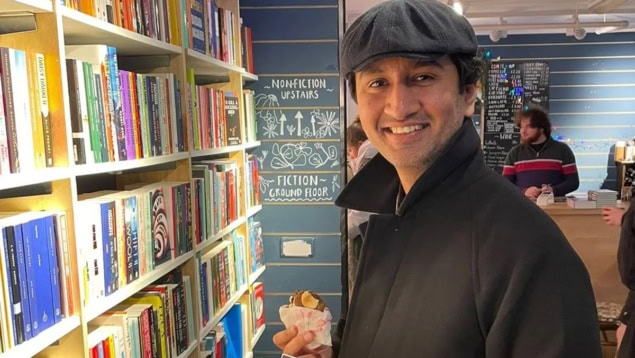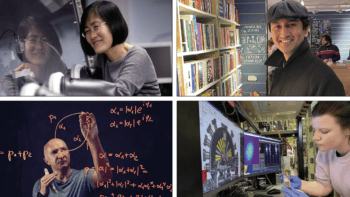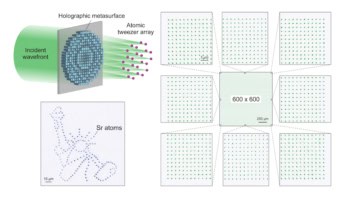Muhammad Hamza Waseem is a research scientist at Quantinuum, where his work focuses quantum natural language processing (QNLP) research as well as quantum physics education and outreach. His other research interests include quantum foundations, applied category theory and mathematical linguistics.

Waseem completed his DPhil in physics at the University of Oxford in the UK, where he worked on applied process-relational philosophy and employed string diagrams to study interpretations of quantum theory, constructor theory, wave-based logic, quantum computing and natural language processing. At Oxford, Waseem continues to teach mathematics and physics at Magdalen College, the Mathematical Institute, and the Department of Computer Science.
Waseem has played a key role in organizing the Lahore Science Mela, the largest annual science festival in Pakistan. He also co-founded Spectra, an online magazine dedicated to training popular-science writers in Pakistan. For his work popularizing science he received the 2021 Diana Award, was highly commended at the 2021 SEPnet Public Engagement Awards, and won an impact award in 2024 from Oxford’s Mathematical, Physical and Life Sciences (MPLS) division.
What skills do you use every day in your job?
I’m a theoretical physicist, so if you’re thinking about what I do every day, I use chalk and a blackboard, and maybe a pen and paper. However, for theoretical physics, I believe the most important skill is creativity, and the ability to dream and imagine.
What do you like best and least about your job?
That’s a difficult one because I’ve only been in this job for a few weeks. What I like about my job is the academic freedom and the opportunity to work on both education and research. My role is divided 50/50, so 50% of the time I’m thinking about the structure of natural languages like English and Urdu, and how to use quantum computers for natural language processing. The other half is spent using our diagrammatic formalism called “quantum picturalism” to make quantum physics accessible to everyone in the world. So, I think that’s the best part. On the other hand, when you have a lot of smart people together in the same room or building, there can be interpersonal issues. So, the worst part of my job is dealing with those conflicts.
What do you know today, that you wish you knew when you were starting out in your career?
It’s a cynical view, but I think scientists are not always very rational or fair in their dealings with other people and their work. If I could go back and give myself one piece of advice, it would be that sometimes even rational and smart people make naive mistakes. It’s good to recognize that, at the end of the day, we are all human.



